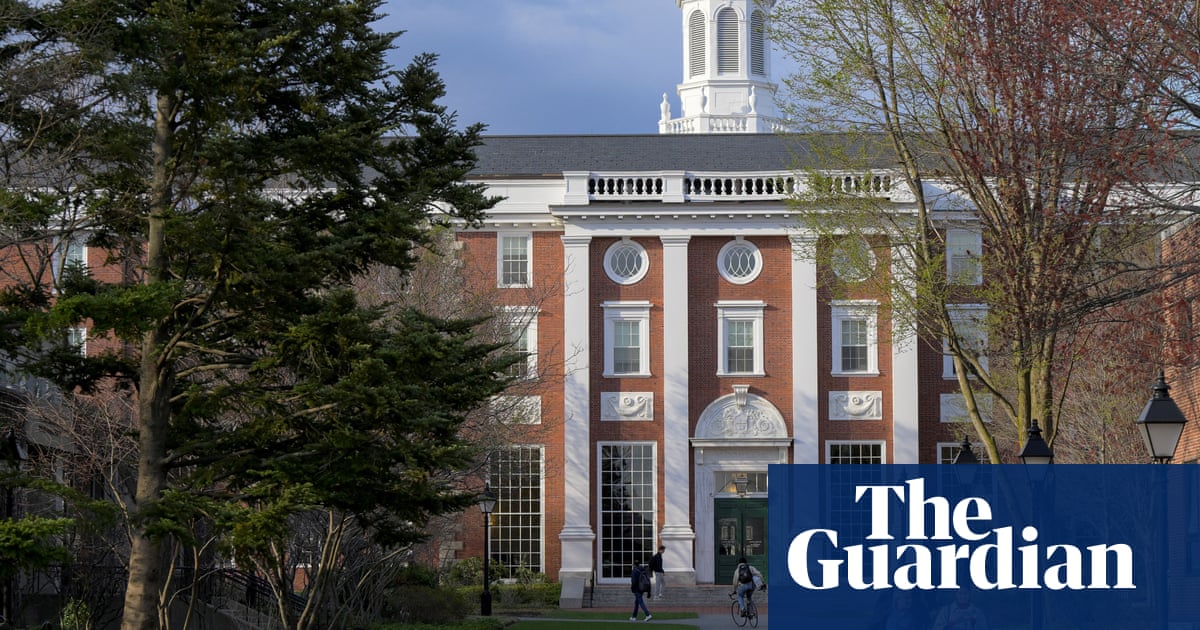Eight federal agencies will terminate a further $450m in grants toHarvard University, theTrump administrationannounced on Tuesday, escalating its antagonization of the elite institution over what officials frame as inadequate responses to antisemitism on campus.
The latest funding cuts come after the administrationcancelled$2.2bn in federal funding to the university, bringing the total financial penalty to approximately $2.65bn.
“Harvard’s campus, once a symbol of academic prestige, has become a breeding ground for virtue signaling and discrimination,” the Trump administration’s taskforce to combat antisemitismwrote in a statement. “This is not leadership; it is cowardice. And it’s not academic freedom; it’s institutional disenfranchisement.”
The cuts represent a flexing of federal power over the US’s oldest and wealthiest university, first triggered by campus protests against Israel’s brutal military campaign in Gaza – one that is only expected to expand in the coming days – but encompasses a far broader set of grievances against the institution and others like it perceived as politically liberal.
Harvard has so far refused to yield, with the university’s president, Dr Alan Garber, who is Jewish, calling the previous attacks “illegal demands” from the administration “to control whom we hire and what we teach”. The university has refused to comply with the administration’s demands, outlined in a letter last month, which included shutting down diversity, equity and inclusion programs; cooperating with federal immigration authorities; and banning face masks, which appeared to target pro-Palestinian protesters.
The school, which has an endowment of more than $53bn, had launched legal action against the initial $2.2bn funding freeze, arguing the university faced no choice after theTrump administration“threatened the education of international students, and announced that it is considering a revocation of Harvard’s 501(c)(3) tax-exempt status”.
The Trump administration’s taskforce to combat antisemitism justified the latest funding reduction by claiming Harvard had “repeatedly failed to confront the pervasive race discrimination and antisemitic harassment plaguing its campus”.
They referenced a series of alleged incidents, including a fellowship awarded by the Harvard Law Review, which the taskforce characterized as evidence of “just how radical Harvard has become”.
Nationwide campus protests appear to be continuing, even as Columbia students were arrested last week. Dozens of students at California State University campuses arestaging hunger strikesin solidarity with Gaza, as they simultaneously call on their school to divest from Israel.
Harvard recently published its own investigations into allegations of both antisemitism and anti-Muslim bias on campus, but these self-regulatory efforts appear to have done little to satisfy administration officials.
Sign up toThis Week in Trumpland
A deep dive into the policies, controversies and oddities surrounding the Trump administration
after newsletter promotion
The Trump administration’s announcement of the new funding cuts was signed by Josh Gruenbaum, commissioner of the Federal Acquisition Service at the General Services Administration; Sean R Keveney, acting general counsel at the US Department of Health and Human Services; and Thomas E Wheeler, acting general counsel at the US Department of Education.
Harvard did not respond to a request for comment.
